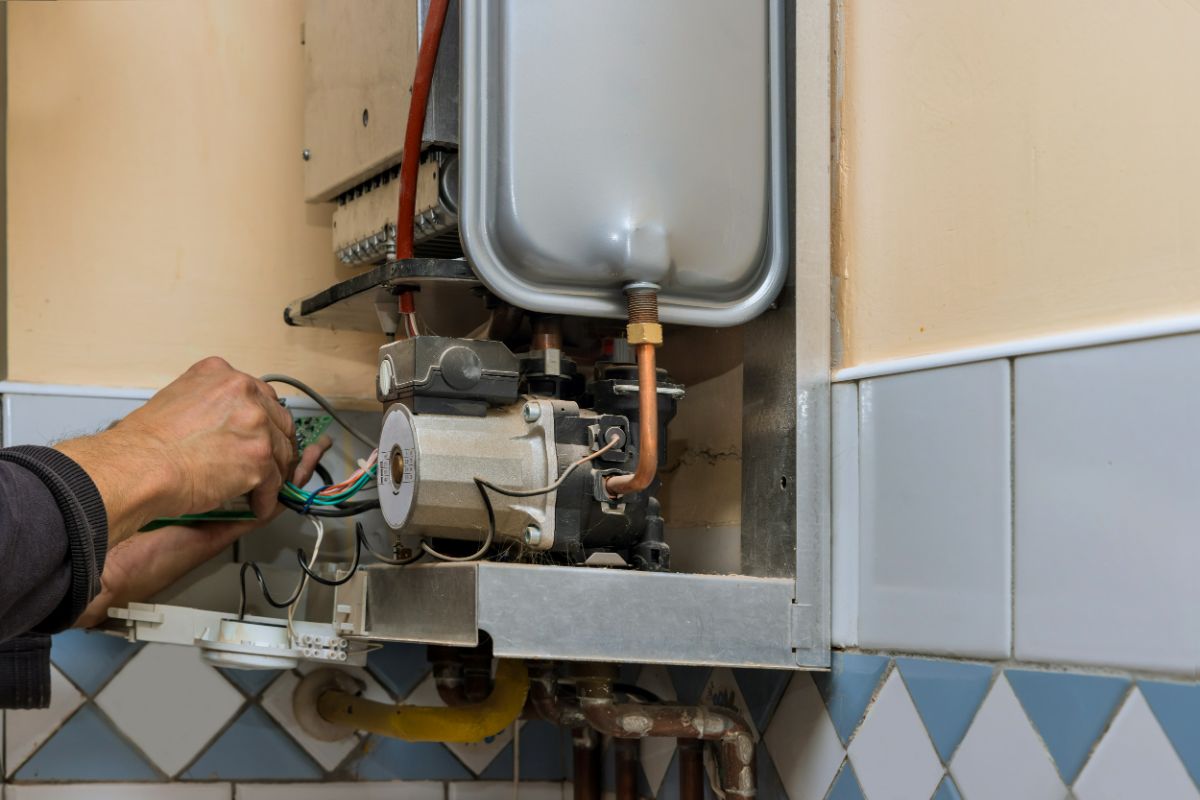Expert Advice on Maintaining Your Home's Hot Water System
Expert Advice on Maintaining Your Home's Hot Water System
Blog Article
What're your thoughts with regards to What Kind of Maintenance Do Water Heaters Need??

Warm water is vital for daily comfort, whether it's for a revitalizing shower or washing dishes. To guarantee your hot water system runs successfully and lasts much longer, regular maintenance is vital. This article provides practical pointers and understandings on just how to keep your home's warm water system to stay clear of disturbances and expensive repair work.
Intro
Maintaining your home's hot water system could appear difficult, but with a couple of straightforward steps, you can guarantee it operates efficiently for many years to come. This overview covers everything from recognizing your hot water system to do it yourself maintenance tips and understanding when to call in specialist assistance.
Importance of Preserving Your Warm Water System
Routine upkeep not only expands the lifespan of your warm water system however additionally ensures it runs efficiently. Ignoring upkeep can result in lowered performance, higher power costs, and also premature failing of the system.
Indicators Your Hot Water System Demands Maintenance
Knowing when your hot water system needs focus can avoid major concerns. Watch out for indications such as inconsistent water temperature, odd sounds from the heating system, or rusty water.
Comprehending Your Warm Water System
Prior to diving into maintenance jobs, it's valuable to recognize the standard components of your hot water system. Normally, this consists of the water heater itself, pipes, anode poles, and temperature level controls.
Monthly Maintenance Tasks
Routine regular monthly checks can aid capture small problems prior to they rise.
Purging the Hot Water Heater
Flushing your water heater removes sediment build-up, boosting efficiency and prolonging its life.
Checking and Replacing Anode Rods
Anode rods stop deterioration inside the tank. Inspecting and replacing them when worn out is crucial.
Inspecting and Adjusting Temperature Setups
Changing the temperature settings ensures optimal efficiency and safety and security.
DIY Tips for Maintenance
You can do a number of maintenance tasks yourself to keep your warm water system in top condition.
Looking for Leakages
Consistently evaluate pipelines and links for leaks, as these can lead to water damage and greater bills.
Examining Pressure Alleviation Valves
Evaluating the stress relief valve guarantees it operates appropriately and stops extreme pressure buildup.
Insulating Pipelines
Shielding hot water pipes reduces warmth loss and can conserve power.
When to Call a Professional
While DIY upkeep is helpful, some problems require professional competence.
Complicated Concerns Requiring Specialist Aid
Examples include major leaks, electric issues, or if your water heater is continually underperforming.
Regular Expert Maintenance Benefits
Specialist upkeep can consist of complete examinations, tune-ups, and making certain compliance with safety standards.
Conclusion
Normal maintenance of your home's hot water system is vital for effectiveness, durability, and price savings. By adhering to these ideas and recognizing when to look for expert assistance, you can make sure a reputable supply of warm water without unforeseen disruptions.
How to Maintain and Troubleshoot Your Heat Pump Water Heater
Know Your Water Heaters Error Codes and How to Clear Them
If your unit is WiFi-enabled, pay attention to the notifications your water heater system sends you and make sure to read and investigate error codes as soon as possible. If your machine has an error code readout on the unit, use your owner’s manual for the hot water heater and find out what the codes mean and how they might be affecting your water heating system. Follow the manufacturer’s directions to assess the issue and clear the code, or call a licensed plumber to take care of that for you.
Change Your Filters Monthly or As-Needed
Heat pump water heaters come equipped with an air filter, usually on the top of the unit where the water heater pulls air into the compressor. Check the filter every few months (put a reminder in your smartphone to make sure you don’t forget!). This will keep peak air flowing into your unit, helping it to work as efficiently as possible and resulting in energy savings over time.
Clean the Condensate Lines
Heat pump water heaters have a condensate drain. As the unit dehumidifies the surrounding area, the moisture has to go somewhere! Make sure to clean this condensate line every year to ensure it doesn’t get backed up with sediment or mold.
To clean the condensate lines, pour a cup of bleach in the access opening of the unit to kill any mold or mildew. Check that the bleach or water flows freely out of the lines, and unclog the lines if needed.
Flush Your Heat Pump Water Heater Annually
Heat pump water heaters are also sometimes referred to as hybrid heat pump water heaters. This is because they contain a backup heating electric heating element inside the tank: the same kind of anode rods used in traditional electric water heaters. That anode rod can become corroded over time from the minerals in your water, and it can begin to decay, break entirely, or heat less efficiently as it becomes corroded. One way to minimize or avoid this corrosion is by flushing your heat pump water heater annually. Just like flushing standard electric or gas water heaters, flushing your water heater is something that any homeowner can DIY if they have a few basic tools and some gumption.
https://www.waterheatersnow.com/blog/how-to-maintain-and-troubleshoot-your-heat-pump-water-heater
:max_bytes(150000):strip_icc()/reasons-gas-water-heater-not-working-5212987-hero-fe6b82a59053421c88b7d13ea311d3c5.jpg)
Do you enjoy reading up on Water Heater Maintenance Tips You Can't Afford to Forget? Put a remark below. We would be delighted to listen to your opinion about this write-up. In hopes that you visit us again before long. Make sure you set aside a second to promote this article if you enjoyed reading it. I cherish your readership.
Visit Our Website Report this page